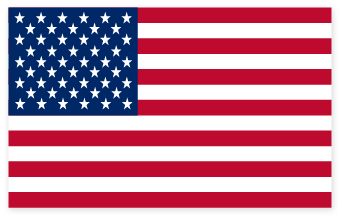Yes, you need to pay him.
Explanation:
The Mishna in Bechorot (37a) writes : One who slaughters a Bechor and he finds out that he did not show it to a blemish expert (which if a bechor has a blemish one may slaughter and eat it), what he ate he ate but he has to return the money to and whatever he did not eat he must bury and return the money. So too on who slaughters a cow and sold it and it is a Treifah, what they ate and what they didn’t they give it back and he has to return the money to them. If the sold it to Goyim or gave it to dogs then they only have to pay the value of a Treifah.
Someone who sells something which is forbidden to eat and the customer ate it. If the paid the seller has to return the money. If the customer still has some left, it depends. If it’s forbidden for Hanaah then it must be buried. If not then he returns the rest to the seller.
The Gemara gives examples of forbidden foods: The Rabbis Taught one who sells meat to his friend and the meat is from a Bechor, or fruit and it was Tevel, wine and it was Yayin Nesech. That which he ate he ate and the seller has to return his money. R’ Shimon ben Elazar said things which are disgusting the seller has to return the money but if not, he deducts what they ate. These are considered disgusting neveilah, Tereifah, bugs, and worms. These foods aren’t disgusting, Bechorot, Tevel, Yayin Nesech.
The Rambam (Mechira 16:14) rules: One who sells eat and the meat is from a Bechor, or fruit and they are tevel, or wine and it is Nesech, then what they ate they ate and he must return the money. So too if he sold something which is forbidden to eat from the Torah, whether it was forbidden with Kareit or just a Lav. One who sells food which is only forbidden from the Rabbis, if it is still around then he can return them and get his money. If he ate it, then the seller does not have to return the money. Anything which was forbidden to derive benefit from he must return the money since the sale was not considered a sale.
The Rambam says there is a difference between selling something forbidden from the Torah or just Rabbinically forbidden. By Torah prohibitions, the seller has to return the money. The Maggid Mishna asks from where does the Rambam know this? He writes I did not find a source for this anywhere however the Gemara only lists things which forbidden from the Torah are forbidden to derive benefit even of Rabbinic nature like Non-Jewish wine, but the Gemara does not mention Rabbinic prohibition. Sine hey ate and derived pleasure they don’t get their money back. The Maggid Mishna suggest the Yerushalmi as a source but he is not sure in the end.
The Shulchan Aruch (CM 324:3) rules like the Rambam that one who sells a Rabbinically prohibited food the seller doesn’t have to return the money.
The Poskim argue what if he did not pay yet.
The Shaar Hamishpat rules that he is still obligated to pay since it is only Issur Derabanan.
The Chatam Sofer argues that if the money is by the seller then he doesn’t have to return it, but if he did not pay, then he does not have to pay for it except the value of a Tereifah since that is what he bought.
The Pri Chadash (YOD 119) explains when the Shulchan Aruch says he does return anything it is only in a case like Gvinat Akum (cheese made by a Goy) which is forbidden only Rabbinically and Jewish cheese is the same price as the Goyish cheese then he does not return anything since he did not make the seller lose by eating it since he could have sold it to Non-Jews. However, by Rabbinic Tevel or Tereifa because of a stringency he must give back the difference between kosher food and non-kosher food.
There are three opinions:
Shaar HaMIshpat-If the buyer did not pay then he must still.
the Chatam Sofer-If he paid, he does not get I back but if he did not then he only has to pay the amount of a Tereifah.
The Pri Chadash- if the buyer paid the seller has to pay the difference between kosher and non-kosher food.
In this case, where it is Bishul Akum for Sephardim and Bishul Akum is only because we are worried about us socializing with the Goyim there is no difference in price between the foods. Therefore, he must pay the entire price.



